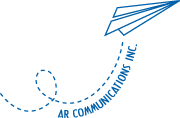The end of the (written) word as we know it?
As someone who prefers writing over speaking any day of the week, one Rosemary O’Connor quote has always resonated with me:
“I write because I don’t know what I think until I read what I say.”
If you feel the same way, then you may have a similar reaction to Facebook’s prediction that, in five years’ time, the written word will be out—at least when it comes to social media—and video will become the communication method of choice.
According to the social media giant, the number of text updates has already started to diminish, while video is on the rise. As someone who gets clunky in front of a camera—who trips over her words, can’t remember what she wanted to say, and says “like”, “um” and “uh” an embarrassingly inordinate amount of times in one sentence—I can’t imagine a day when I’d ever turn a camera on myself to announce a mundane update in my life.
That said, I understand the whole notion of “show, don’t tell”—and while it may be difficult to capture many of life’s personal, spontaneous moments on camera, I definitely see how businesses could start relying more on video when it comes to social media marketing.
What do you think? Could the written word eventually become extinct? What would that type of world even LOOK like?

